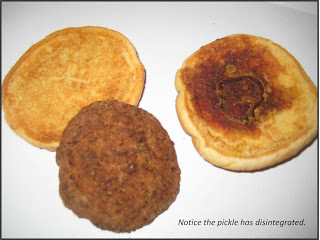Mummified McDonald’s Burger Found In Closet, Still Looks Edible
McDonald’s maintains that their products are actual food, and not inherently immortal. The burger’s longevity has more to do with the conditions in which it was stored.
McDonald’s hamburgers are freshly prepared in our restaurants. While not knowing the conditions in which the food was kept in this specific claim, what is scientifically known is that in bacteria and mold only grow under certain conditions. For example, without sufficient moisture – either in the food itself or the environment in which it is held – bacteria and mold and associated decomposition, is unlikely. If food is/or becomes dry enough, it won’t grow mold or bacteria. In fact, any food purchased from a restaurant or grocery store or prepared at home that lacks moisture would also dehydrate and see similar results if left in the same environment.
As we’ve pointed out regarding similar McStunts in the past, it’s not just McDonald’s: a homemade burger stored in identical conditions will dry out in a similar way. It’s bacteria and moisture that rot food: burgers are wide and flat, meaning that they have a lot of surface area. That eliminates bacteria and moisture when they’re cooked, and explains why burgers don’t rot. Fast food is salty, too: before refrigeration, guess what people used to preserve their food?
Of course, a scientific experiment is only successful if you can duplicate the results. A few years ago, a Consumerist commenter set up a camera and a Happy Meal to find out what really happens when you leave a burger and fries out and exposed to the elements. After only a few hours, the entire meal evaporated under mysterious circumstances.
1999 McDonald’s Hamburger Ages Gracefully [ABC News]
World’s Oldest Hamburger [Official Site]
Want more consumer news? Visit our parent organization, Consumer Reports, for the latest on scams, recalls, and other consumer issues.


